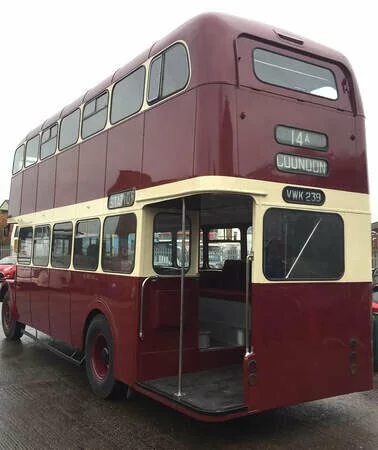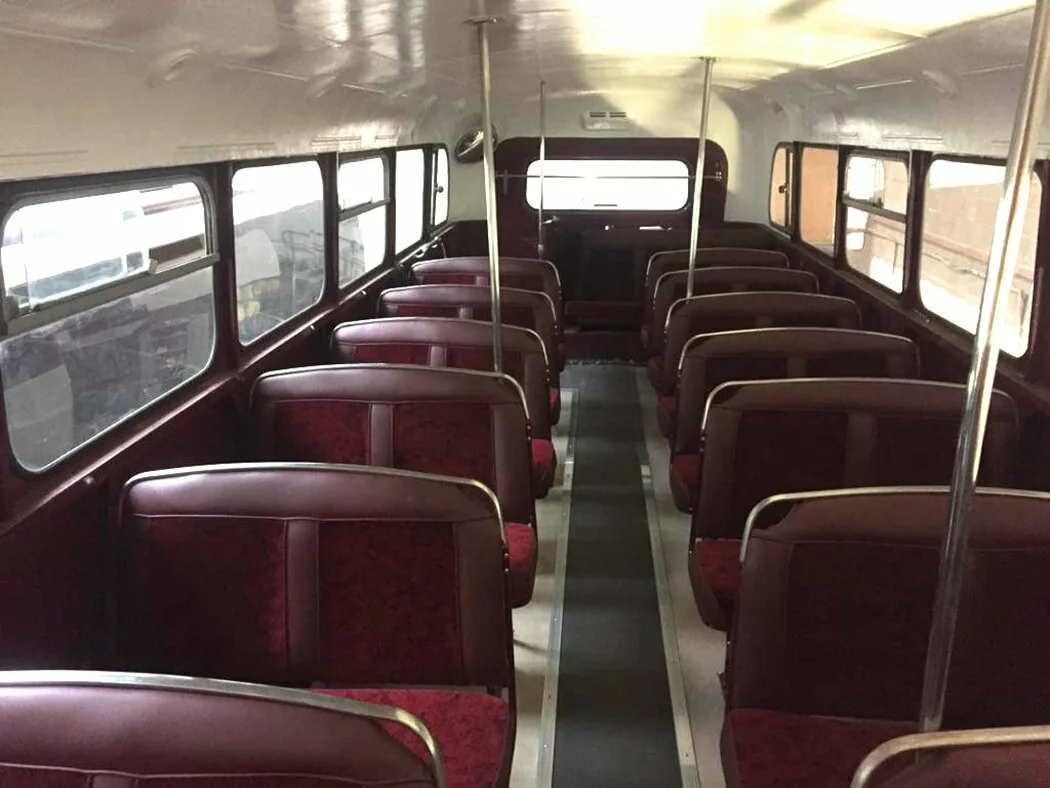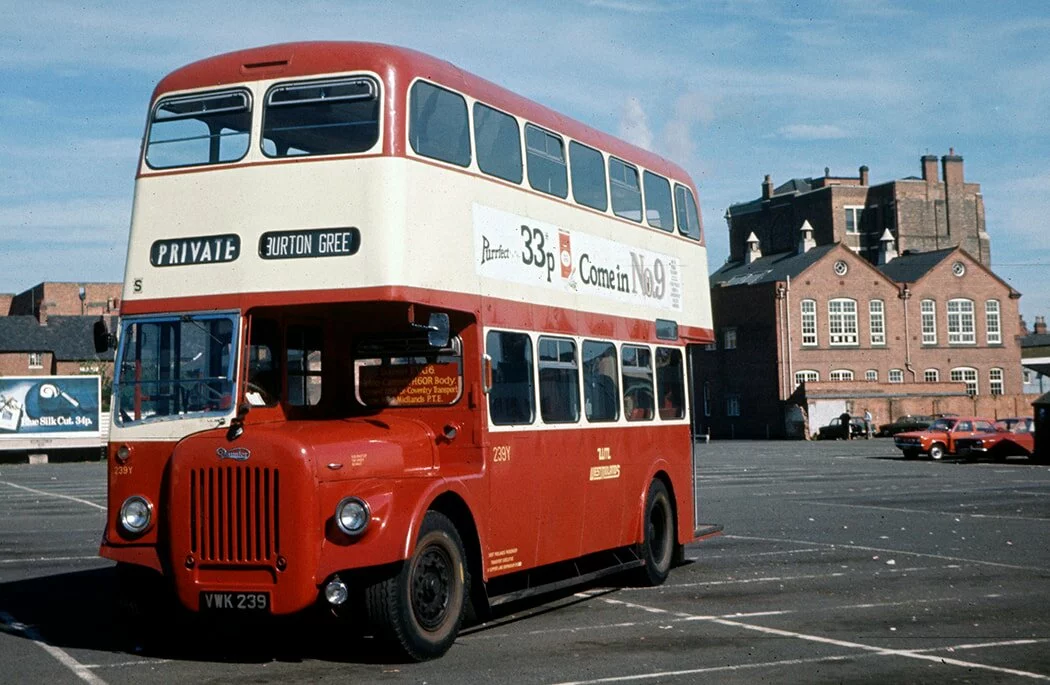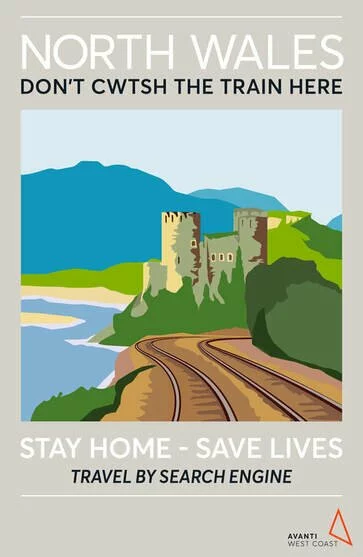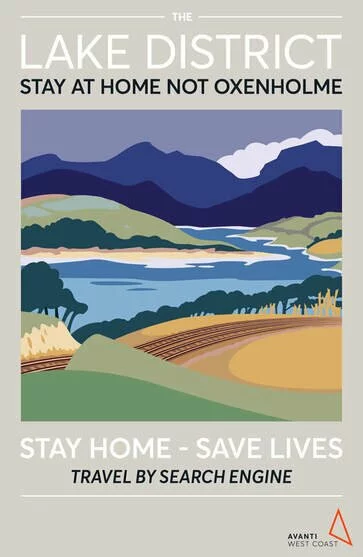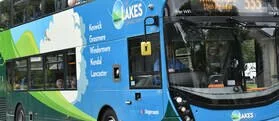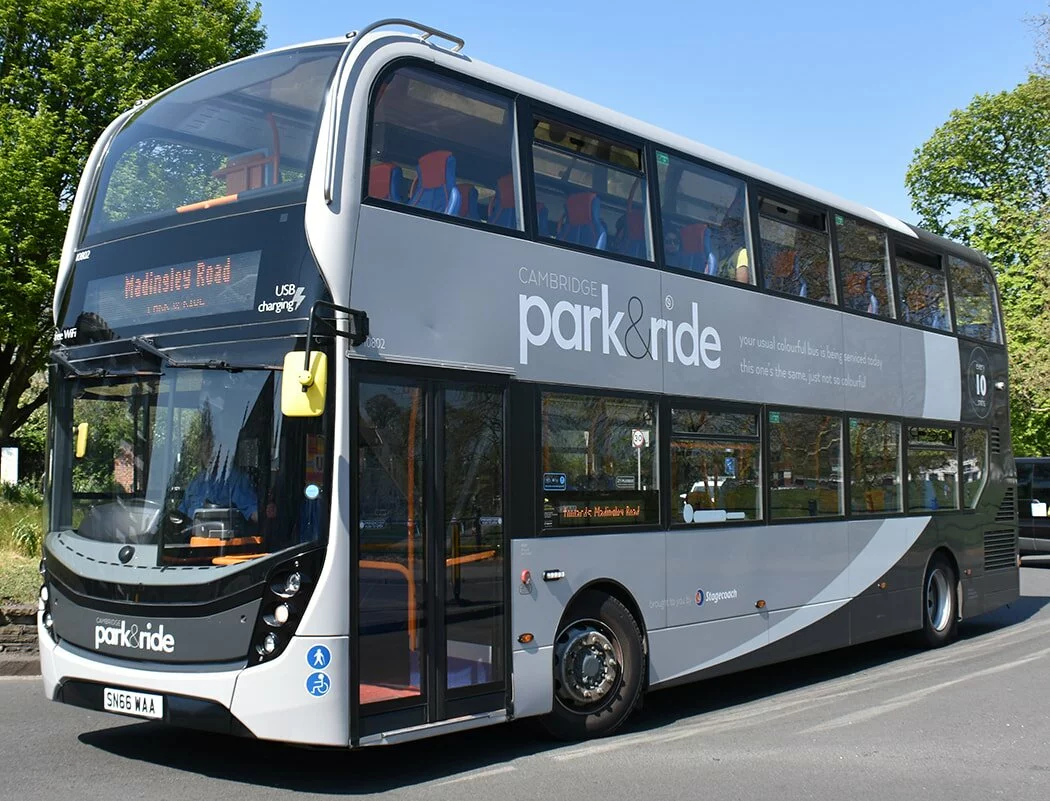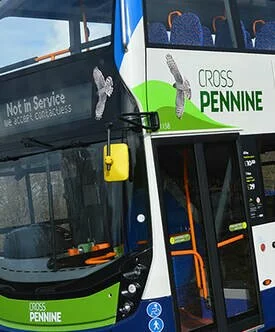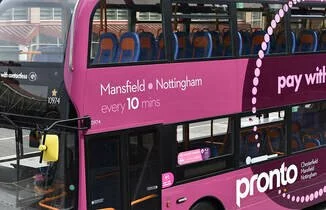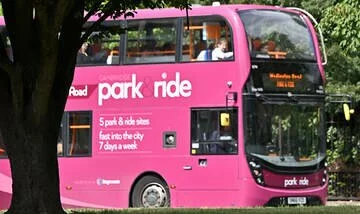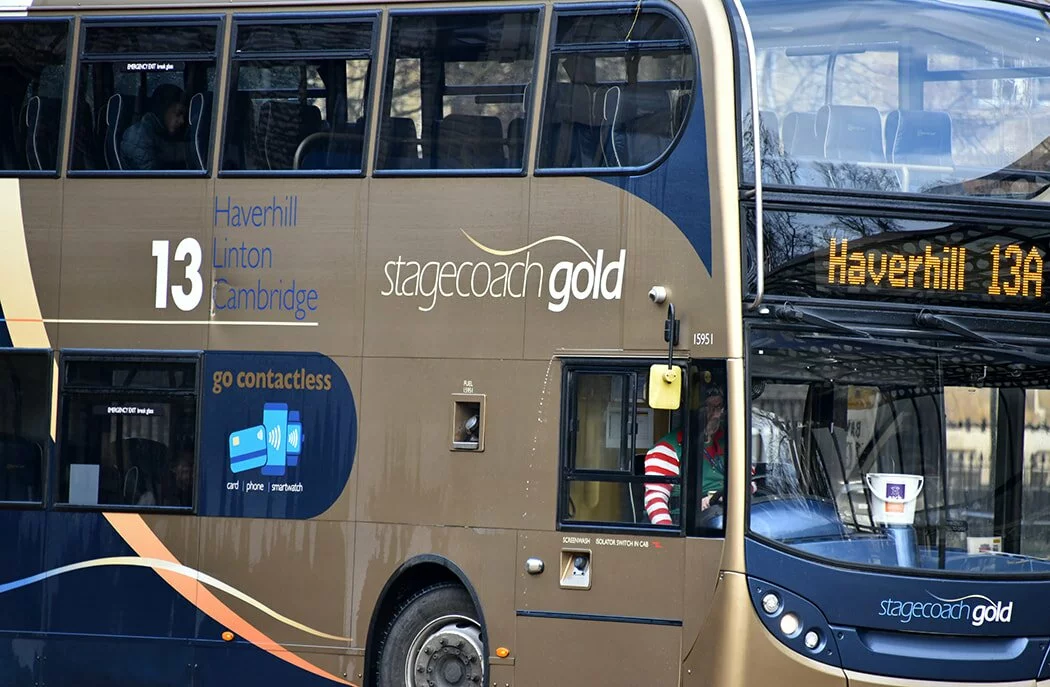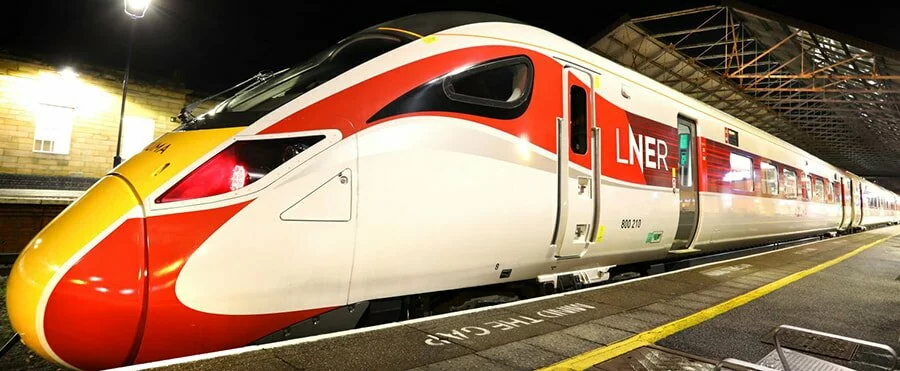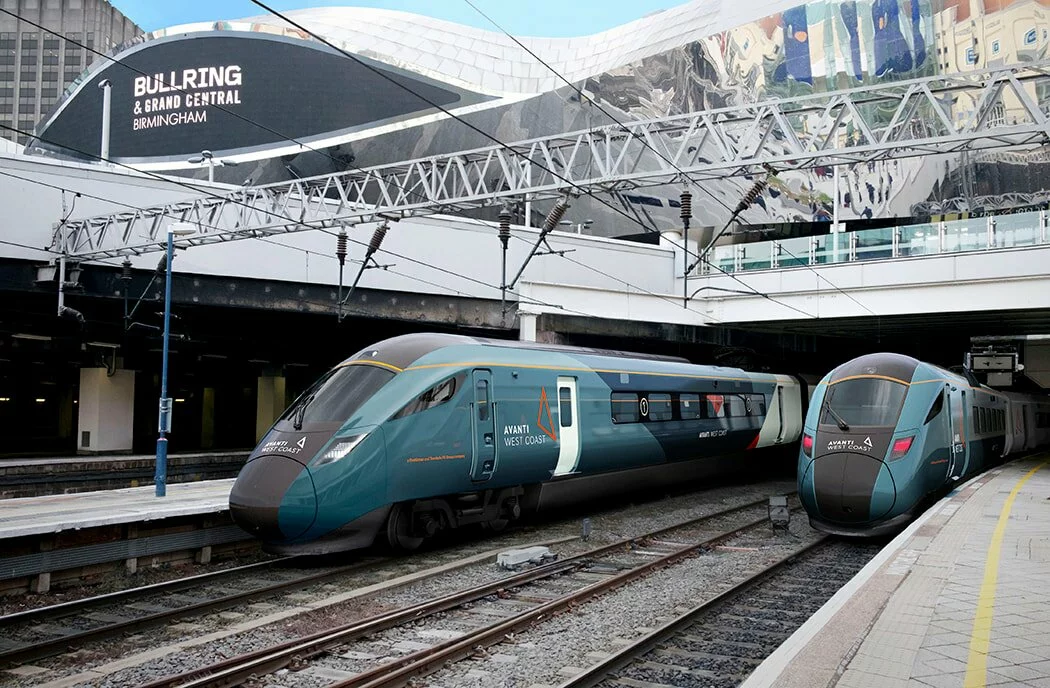
As the railway network gears up for an increase in passenger numbers from next week with the opening of non-essential retail from Monday June 15th, we caught up with Avanti West Coast to find out how their train services are coping.
We are told that around 200 train services a day are operating as against the normal 312 timetabled services with average loading between 20 and 30 passengers per train. The West Coast operator is operating a reservation system and says that reservations are increasing at around 10% per week but this is from a very low base figure. Thec hange is likely to see a few more train services restored to the London-West Midlands route. The next major uplift is likely to take place in early July when the number of Avanti West Coast departures from London’s Euston station will increase from six to eight which will see the three-trains-an-hour pattern restored to the Birmingham and Manchester routes. An Avanti west Coast spokesman has confirmed that the branding of the Pendolino trains into the Avanti livery will ramp up in the next few weeks with Aura Graphics undertaking the work at various depots. The plan is for a minimum of two sets to be completed each week. The company has also confirmed that Class and set numbers have now been allocated for the Hitachi IET trains that are due to be added to the fleet. The bi-mode sets will be Class 805 (805001-013) and the seven car electric sets will be Class 807 (807001-010).
The confirmation from Stagecoach that it has taken the planned investment in 34 new coaches for its Oxford Tube operation out of this year’s budget comes as no surprise.
Stagecoach says it has ‘deferred’ the investment but we suspect it will not just be added back into the investment plan in the future. More likely is that a completely new Business Case will need to be justified. Our view is that it could take many months, maybe years before business returns to pre COVID-19 levels. Stagecoach has already suspended its Oxford Tube operation along with its Megabus services in England and Wales. The Cambridge-Oxford coach link now only runs between Cambridge and Milton Keynes. National Express has also suspended its coach operations. Local bus services, not just those provided by Stagecoach but virtually all bus services, have been reduced to a minimum level to provide for ‘Key Workers’. Bus and coach companies have mothballed huge swathes of their fleet - more than 60% in some cases and even more in an attempt to reduce costs. What is unknown is when bus and coach services will return to ‘normal’ or even what a ‘new’ normal may look like. How will ‘lockdown’ be eased? How long will ‘Social Distancing’ remain in an eased lockdown Britain? What other restrictions will remain? The Country will not come out of ‘lockdown’ and the following day return to a pre COVID-19 state. Recovery will, in our opinion, be slow. Yes, bus passengers will return but to what level? During ‘lockdown’ millions of people have been working from home. Already we are hearing of big companies suggesting that ‘working from home’ could remain post-‘lockdown’. That could mean massive reductions in commuter business. We predict that huge numbers of buses will become surplus to requirement and confidence to order new buses will take a knock. Coach operators may have to find solutions initially to maintain ‘Social Distancing’ on School contracts but that part of the workload will return. But what about those who would normally have busy holiday and tours programmes. It could be a long and slow rebirth. Again, what confidence will remain for fleet upgrades. All this could spell bad news also for the bus and coach builders. They are already seeing companies scale back their planned investment this year and may find that it will be into next year at least before orders stat to be placed again. What happens and how the industry responds and recovers will depend upon the Government’s post-‘lockdown’ strategy and also how much public confidence around bus and coach travel has been knocked. We hope we are wrong and that industry recovery takes place at a faster pace but realistically it will be a long time before the industry fully bounces back. Coventry Daimler CVG gets makeover29/4/2020 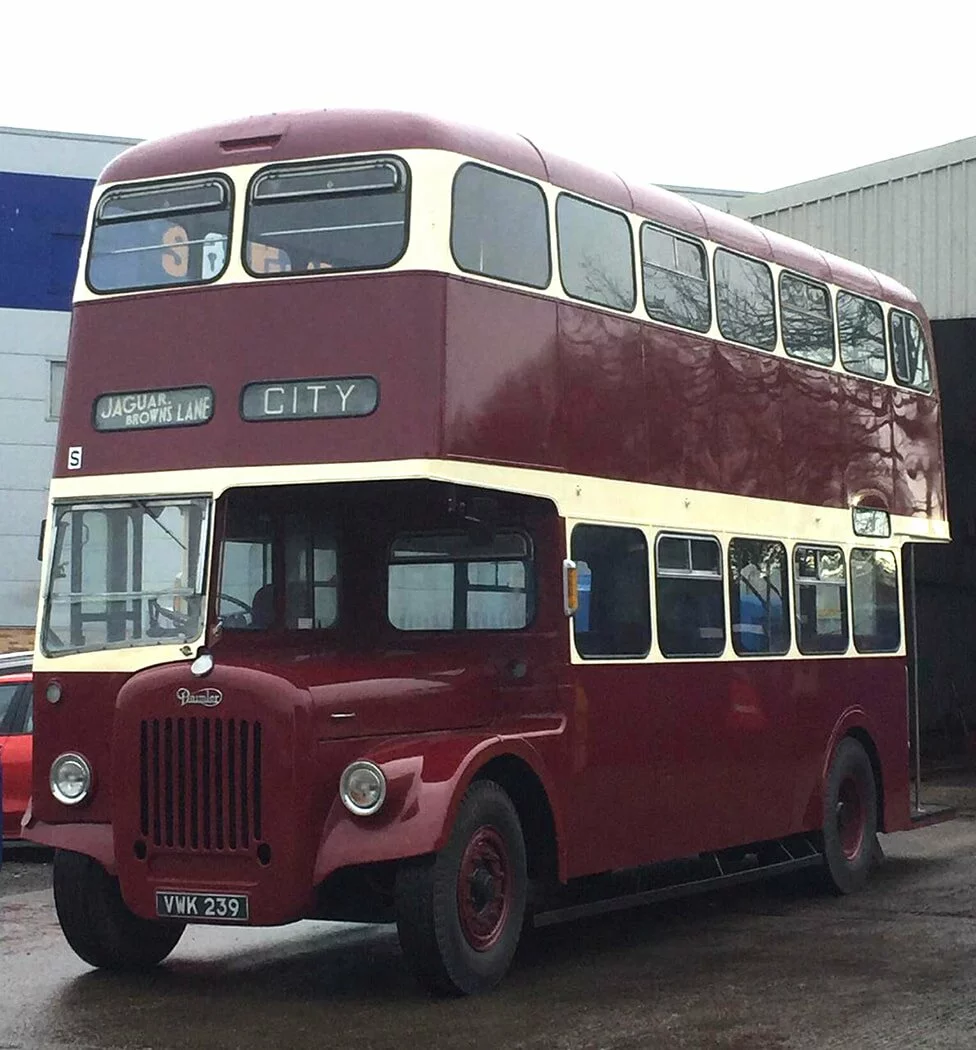 © Roger Burdett © Roger Burdett
It was 44 years ago that former Coventry Transport Daimler CVG 239 (VWK239) was repainted in Coventry Marshall red and cream livery rather than receiving the expected West Midlands PTE blue and cream colours. This prompted the bus to be chosen to take on the Rykneld Run in 1976. The bus was then on display at Derby Transport’s depot in Derby.
So started a busy period for the bus, which spent a period during school holidays helping out at the former Midland Red but by then WMPTE-owned Hartshill garage. Visits to Showbus at Hillingdon followed in 1977 and 1978 as well as local appearance within the West Midlands. Upon withdrawal it was bought by a group of staff, of which I was part, from Coventry but was never fully restored. That took place when it passed to DeCourcey of Coventry, who replaced the red and cream livery with the darker original livery which was carried. 239 took part in a Reunion event for former Coventry bus staff in 2010 but had generally remained stored since then. Now it has been restored and looks resplendent. It is now up for sale with a sale price of £25,000. The sale is being handled by respected Midlands-based preservationist Roger Burdett.
In line with Government advice, train operators continue to urge people to only travel by train where their journey is essential, such as that of a Key Worker.
Avanti West Coast told us recently that loadings were in line with people complying with the Government’s advice and on some trains loadings had been in single figures. Now it had come up with a number of retro-style posters to continue to promote the ‘Essential Travel’ and ‘Stay Home’ messages. Railway posters have always been iconic and we must say that we do like the retro-look of these posters. A spokesperson for Avanti West Coast said: “We’re lucky to serve beautiful destinations along our route but whilst the UK responds to COVID-19 our vital services are only here for key workers and those making essential journeys. To get across that message and keep communities safe we have created artwork depicting them, including Conwy Castle and The Lake District, to reiterate the latest government advice and support the message not to visit North Wales and Cumbria.” 
The Rail Delivery Group (RDG), which administers the National Railcard scheme on behalf of train operators says that there will be no refunds of extensions for Railcard holders despite the current COVID-19 travel restrictions.
The RDG has not responded to a request to disclose how many Railcards are currently in use but says that Railcards are non-refundable and no extensions to expiry dates will be given. With train companies operating reduced timetables, and the Government insisting rail travel is currently being provided for key workers, millions of people have been forced to abandon their rail travel plans. That includes those who make regular use of their Railcard(s) Whilst refunds have been offered for tickets already purchased under a deal agreed between the Government and the rail industry, there is no such scheme to offer compensation to Railcard holders. Whilst the RDG says that the savings on just one journey can cover the cost of a Railcard, it fails to acknowledge that most Railcard holders make many journeys a year and are currently unable to do so. A spokesperson for the Rail Delivery Group told Steven Knight Media: “Railcards provide great value for customers as the cost of a Railcard can often be covered by the savings they offer in a single journey which is why they are normally non-refundable and cannot be extended. “We recognise that these are exceptional times which is why we have offered fee-free refunds on almost all kinds of tickets, have extended the time to claim a ticket refund and are refunding tickets remotely without people having to travel to a ticket office.” With the Government call for ‘Essential Travel Only’ set to continue for at least another two weeks and possibly longer we hope that the Rail Delivery Group will reconsider its position and at least offer extensions when Railcards come up for renewal. But, given that Railcard extensions would affect the revenue stream for train operators is it a case that the Government would have to make the decision? 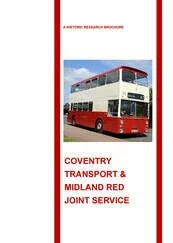
The recent extension of National Express Coventry's services through from Bedworth to Nuneaton reminded me that almost 50 years ago Coventry Transport was working with the National Bus Company's Midland Red subsidiary to operate a joint service between Stoke Aldermoor-Coventry-Ash Green-Bedworth and Nuneaton.
The local Government re-organisation of 1974 saw the scheme abandoned but not before much work had been done on the planning, including production of timetables and fare tables. Back in 2012 we produced a Research Paper on the proposal but never finished it through to publication. We can now share it with you. It has been uploaded in four parts as we have to limit our uploaded documents to under 1MB. All the pages are there, but to save file space we have deleted the blank pages.
The transport sector is having to come to terms with unprecedented challenges through the current crisis situation. However, COVID-19 seems to have achieved the transfer back into (temporary) Public Ownership of the rail franchise system.
Train operators are running a much reduced timetable, some are mothballing trains, and passenger numbers have significantly reduced as the Government pushes its essential travel only message. So what is the position now and what is the Government’s exit strategy to return train operations to the private sector. Rail franchises are effectively now Government controlled and operated by the private companies under a Management Contract. I understand that the arrangement gives the private companies a ‘commission’ of 2% which was based on a complex set of calculations based on franchise cost base at March 1st. There was no option given for the private companies to remain as commercial operators. The Government apparently dictated that those that did not sign up to the Management Contract would be replaced by the Government’s own Operator of Last Resort (OLR). All signed up and the only franchises which are under the OLR are LNER and Northern. So how long will these arrangements apply? Initially for six months says the Government. During that time we may get to see the contents of the Williams Report which is likely to suggest radical changes to the rail franchising system. Couple with that the fact that whatever the date is that the Management Contracts end, se it after six months or even longer, the railway that the private companies have will bear no relation to the railway they had at the start of 2020. Passenger numbers will no recover to pre COVID-19 levels overnight. It will take months if indeed passenger levels do return. Sure, leisure business will see a boost at people make visits to family and friends. But these are generally price-sensitive passengers who will travel at off-peak times. What the COVID-19 restrictions have demonstrated is the ease that people can work from home given the technology that is now available. The unknown is how many companies will allow staff to work from home in the future allowing them to downsize offices and other infrastructure. I suspect that the private companies will all want to re-negotiate their franchise going forward. Their Business Plans on which the franchise finances were based are now not worth the paper they are printed on. The difficulty for the private rail franchises is how can they prepare a new Business Case for the post COVID-19 railway when neither they, nor Government, know what the post COVID-19 railway will look like. Will we see a queue at the Secretary of State for Transport’s door asking, nay demanding, that the Management Contract terms continue until the railway has returned to some kind of normality. Mind you, that could take years. We salute all key workers and that includes everyone keeping the railway running at this difficult time but is it really necessary for a train operator running a massively reduced train service with relatively few passengers to keep telling us it is achieving 100% performance. But there again it is one of the train companies operated directly by the Government’s Operator of Last Resort so it must be Government policy to push performance figures at this time…. Open Access rail operators Hull Trains and Grand Central suspend services (Update 6th April 2020)6/4/2020 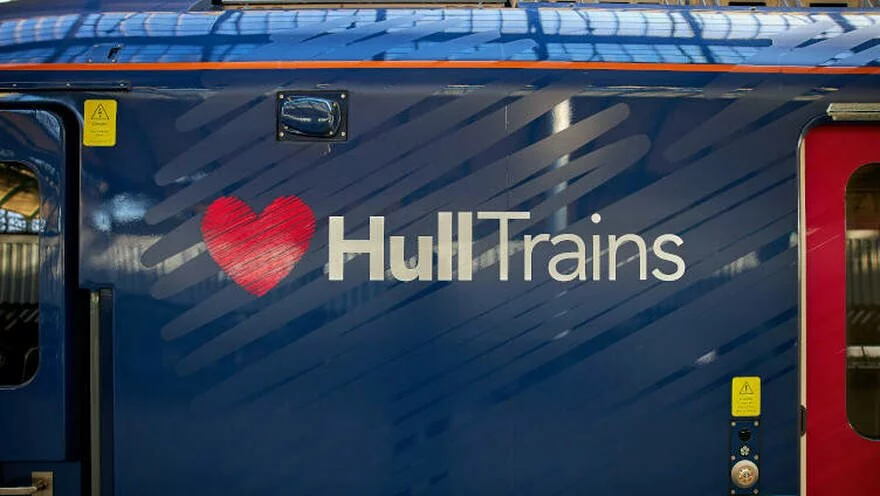 © Hull Trains © Hull Trains
In our Blog last week we said that the Government’s plans for putting franchised train operators onto management contracts made no reference to Open Access operators.
Now we get the news that Hull Trains, a First Group company, has decided to suspend all its services until further notice. A statement on the Hull Trains website this morning read: “As a result of the unprecedented circumstances surrounding the coronavirus pandemic, passenger numbers across the industry have dropped significantly since national guidance was issued for people to stay at home and stop all non-essential travel. ‘Hull Trains is an open access operator and does not have a contract with the government, as a result we have not been offered additional financial support which franchised rail operators have in the form of an Emergency Measures Agreement. ‘After exploring all possible avenues to keep services running, it is not currently financially viable to run our services. ‘If you are a key worker and your travel is essential Hull Trains tickets WILL be accepted across all other train operating companies”. Rail union RMT responded to the service suspension by saying: "This decision affects 130 rail staff around the Hull area and they must be treated as an absolute priority. We expect the company and the Government to guarantee wages at 100% and not some reduced rate and we also expect jobs, service, pensions and conditions for these rail staff to be fully protected throughout this crisis. We will be in direct talks to secure our members the guarantees they are entitled to. The Government have given the rail companies financial assurances, the same must apply to staff". Open Access operator Grand Central, which also operates on the East Coast Main Line has now also suspended its services. 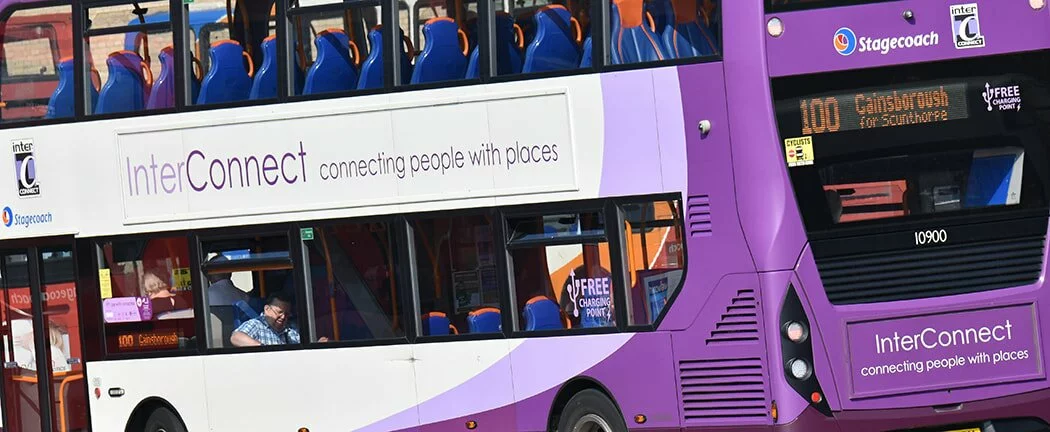
Back in January Stagecoach unveiled its new image with three distinct bus and coach liveries. But, it wasn’t long before the OpCos in Manchester and Cambridge created two more for provincial electric buses, although the both did have a hint of the Ocean Green colour from the ‘Specials’ livery.
So that makes five….. But that’s not the end of the story. News reached us from the East Midlands that buses were still being painted in the purple/violet InterConnect livery which is based on the former Stagecoach ‘Beach Ball’ livery. Head further north and the Cumbria & North Lancashire business is still painting buses in the very attractive Lakes Connection livery. Back to Cambridge and the Busway brand is being applied to Cambridgeshire Busway vehicles which now carry all over Ocean Green livery, rather than the ‘Specials’ version of the new livery scheme (in fact as far as we are aware no buses carry the ‘Specials’ Ocean Green livery - the Enviro 200MMC used for the livery launch was rapidly repainted into the ‘Stagecoach Local’ livery within days). But now it seems, although we have no official confirmation from Stagecoach, that where there is a recognisable and strong brand already in use then it can continue to be used. We would expect this to include Stagecoach East’s X5 and Park & Ride brands, Stagecoach East Midland’s InterConnect and Pronto brands, Stagecoach Cumbria & North Lancashire’s Lakes Connection and Cross-Pennine liveries and branding. Add to that Megabus and Oxford Tube. But let’s not forget there is a national brand, a brand that in some areas outnumbers buses in corporate livery - Stagecoach Gold. We suspect that there is now dispensation for this brand to continue to be used. If that is the case then it is bad news for the team at Stagecoach Oxfordshire who were refused new buses in Stagecoach Gold livery last year and now operate Enviro 400MMCs in the old corporate livery on routes previously marketed under the Stagecoach Gold banner. If our assumption is correct and lots of existing liveries and brands can be retained it makes a mockery of the new Stagecoach identity. 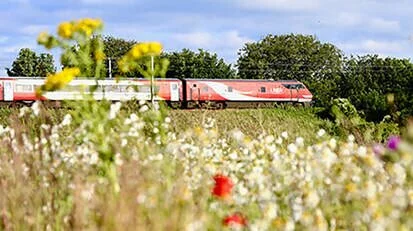 © LNER © LNER
Every now and then an online story catches the attention and there sat one of them yesterday. Respected rail journalist Richard Clinnick from RAIL magazine broke the (welcome) news that LNER is being forced to extend its planned use of Class 91 and Mk 4 trains yet again.
Due to be withdrawn by June this year, first there was an extension planned through until the end of 2021 and now Richard has revealed in his news story that they could remain in service until the end of 2023 with ten operational sets and two spare Class 91s along with spare coaches being retained on LNER books. So what has gone wrong? In the same story Richard adds that LNER needs six more trains and the procurement lead time necessitates retaining the Class 91s and Mk4s. So why are more trains needed. Is the timetable far too ambitious for the existing number of trains? If so do we have another Virgin CrossCountry issue here? Or, is maintenance of the trains taking longer? Perhaps Hitachi is are the train and maintenance provider to LNER for its new trains has suddenly found out it cannot meet the requirement for the number of trainsets LNER requires each day? Now, on top of any existing problems, modifications to all inter-car connections have to be made by June 2022. Given it was deemed a safety issue that’s a long time to do the mods! Whatever the reason, prior to the service reductions as a result of the Coronavirus the problems were really starting to show. Trains that were booked as ten coaches formed of two x five coach units were being short formed as a five coach train. Elsewhere there were set swaps aplenty. I must admit I am not a fan of these new LNER ‘Satsuma’ (sorry, ‘Azuma’) trains having experienced them on several journeys prior to the Coronavirus travel restrictions being imposed. In a packed carriage the temperature seems to climb higher and higher with little feel of air circulation. Walk into the vestibule and the air is much fresher. And don’t get me started on the seats. I’m sure our ironing board has better padding. I am told that prior to the Coronavirus restrictions LNER was revamping how it delivered onboard service in First Class in both the structure of the onboard teams as well as how individual staff will now work closer as a team. But, there needs to be some consistency as well as a common-sense approach. On a recent journey from London to Peterborough on a cold day, only cold drinks were offered. No option of a warming tea or coffee. A previous journey from Lincoln to Peterborough saw First Class food orders taken on leaving Lincoln. Hot food was served after leaving Newark but sandwiches can around Stoke Bank. As for the desert pot, we were handed ours to take away as we got off the train! And don’t get me started on set swaps. At least LNER now adopts the policy of not having reservations on services operated by another type of train or a short formed set. Before this policy came in reservations were being downloaded irrespective of the type of train used making it extremely confusing for passengers and putting staff in a potential conflict situation. I also raised with LNER recently that the ability to change seat reservations when tickets are booked online is no longer offered for all bookings. Seats on some trains are allocated on a fixed basis, whilst others can be changed to preferred seats. I have also had an issue where two tickets booked together with a Two Together Railcard has resulted in split seats in different parts of the carriage - certainly not ideal and certainly not if they cannot be changed. At least I may be able to plan my travel on Mk4 trains for the foreseeable future once the country starts to get back to normal. But there again, I’m sure the chances of a set swap remain high! |
||||||||||||||||||||||||
- Home Page
- About SKM
- Fleet Updates
- Fleet News Ramblings
- The Steven Knight Media Blog
- Our Books
- Contact us
- Home Page
- About SKM
- Fleet Updates
- Fleet News Ramblings
- The Steven Knight Media Blog
- Our Books
- Contact us

